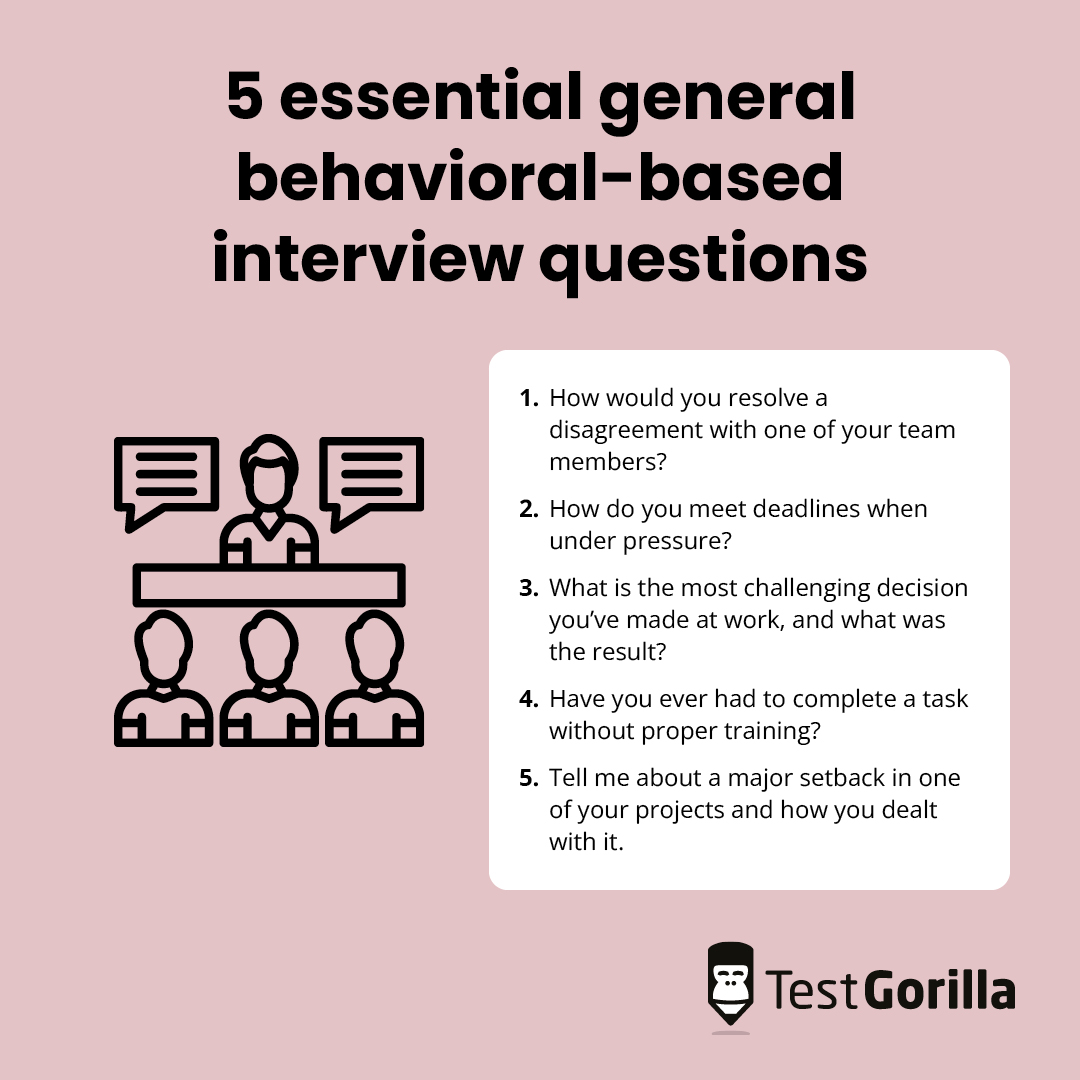Have you ever bombed a job interview despite feelingperfectly qualified? You aced the technical questions, but the behavioral onesleft you stumped. Many talented candidates struggle with these unpredictableinquiries that delve into past experiences.
Fear not, fellow job seekers! Unveiling the secrets behindbehavioral interview questions is the key to unlocking success. This blog willequip you with a winning formula to confidently navigate these scenarios andshowcase your true potential to employers.
What are Behavioral Interview Questions
Behavioral interview questions are designed to assess yourpast behavior and how it relates to the job you are applying for. They are usedto determine if you have the skills, experience, and personality traits thatare required for the position.
Behavioral interview questions typically start with thephrase "Tell me about a time when..." or "How did youhandle..." They are designed to get you to talk about a specific situationin your past and how you dealt with it.
When answering behavioral interview questions, it isimportant to be specific and to provide details. Talk about the specificactions you took, the results you achieved, and the lessons you learned.
Short Pro Tip: Keep following our blog for more recruitment updates from the best recruiters of Pakistan for Saudi Arabia and all over the Gulf.
Examples of Behavioral Interview Questions
- How did you overcome a challenge at work?
- What are your strengths and weaknesses?
- What are your salary expectations?
- Why are you interested in this job?
- What do you know about our company?
- What was your biggest accomplishment at your last job?
- Describe a time when you had to work on a team project and how you contributed to the team.
- Tell me about a time when you had to deal with a difficult customer.
- How did you handle a situation where you had to work with a difficult coworker?
These are just a few examples of the many different types ofbehavioral interview questions that you may be asked. It is important to beprepared for these types of questions by thinking about your past experiencesand how they relate to the job you are applying for.
How to Answer Behavioral Interview Questions
Behavioral interview questions are designed to assess yourskills and abilities in a real-world setting. They typically ask you about pastexperiences and how you handled certain situations. To answer these questionseffectively, you need to be able to provide specific examples of your workexperience and how you applied your skills and knowledge to solve problems.
Here are a few tips for answering behavioral interviewquestions:
- Be prepared. Before the interview, take some time to think about your work experience and identify specific examples of how you have used your skills and knowledge to solve problems.
- Be specific. When you answer behavioral interview questions, be as specific as possible. Give the interviewer concrete examples of your work experience and how you applied your skills and knowledge.
- Be concise. Your answers should be concise and to the point. Don't ramble on and on about your experiences.
- Be positive. When you answer behavioral interview questions, try to focus on your positive experiences and how you have used your skills and knowledge to solve problems.

Image Source: testgorilla.com
Behavioral Interview Questions for Different Jobs
Behavioral interview questions are designed to assess yourskills and experience in a real-world setting. They can be used to evaluateyour ability to work independently, collaborate with others, solve problems,and make decisions.
The type of behavioral interview questions you'll be askedwill vary depending on the job you're applying for. For example, if you'reapplying for a job in sales, you might be asked questions about your ability tobuild relationships with customers and close deals. If you're applying for ajob in engineering, you might be asked questions about your ability to solveproblems and work independently.
Here are some examples of behavioral interview questions fordifferent jobs:
- Sales: "Tell me about a time when you had to build a relationship with a customer."
- Engineering: "Tell me about a time when you had to solve a difficult problem."
- Management: "Tell me about a time when you had to lead a team."
- Customer Service: "Tell me about a time when you had to go above and beyond to help a customer."
When answering behavioral interview questions, it'simportant to be honest and provide specific examples of your experience. Beprepared to elaborate on your answers and to provide details about thechallenges you faced and how you overcame them.
By preparing for behavioral interview questions, you canincrease your chances of success in your next job interview.
Behavioral Interview Questions for Senior-Level Jobs
Senior-level job interviews are often more challenging thanentry-level job interviews, as hiring managers are looking for candidates whohave a proven track record of success in their field. Behavioral interviewquestions are a common way for hiring managers to assess candidates' skills andexperience, and they can also help to determine whether a candidate is a goodfit for the company culture.
Here are some examples of behavioral interview questionsthat you might be asked for a senior-level job:
- Tell me about a time when you had to deal with a difficult customer.
- Describe a time when you had to work on a team project and how you contributed to the team's success.
- What are your biggest strengths and weaknesses?
- What are your goals for the future?
- Why are you interested in this job?
When answering behavioral interview questions, it'simportant to be honest and to provide specific examples of your experience.It's also important to be prepared to answer questions about your weaknesses,as hiring managers are looking for candidates who are aware of their ownlimitations and are willing to work on them.
By taking the time to prepare for behavioral interviewquestions, you can increase your chances of success in your job search.




























